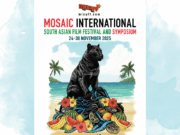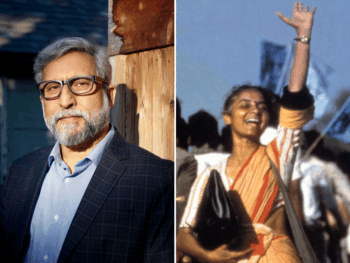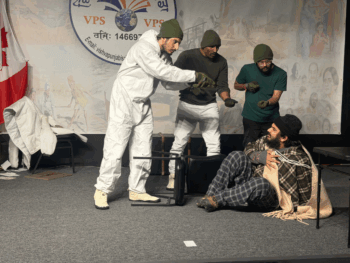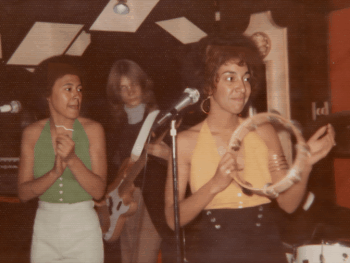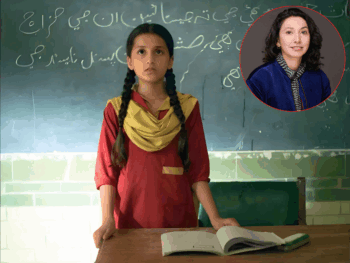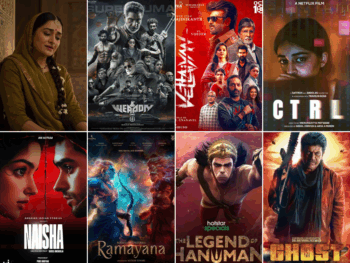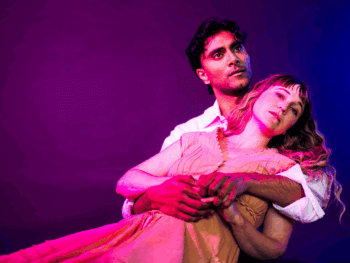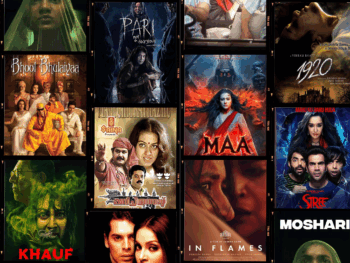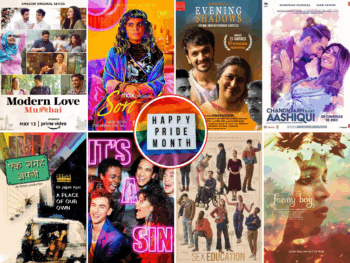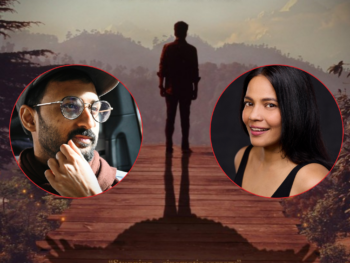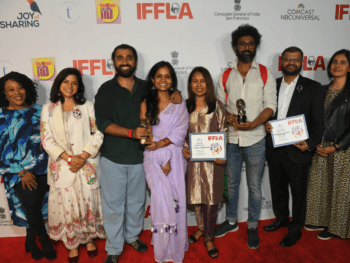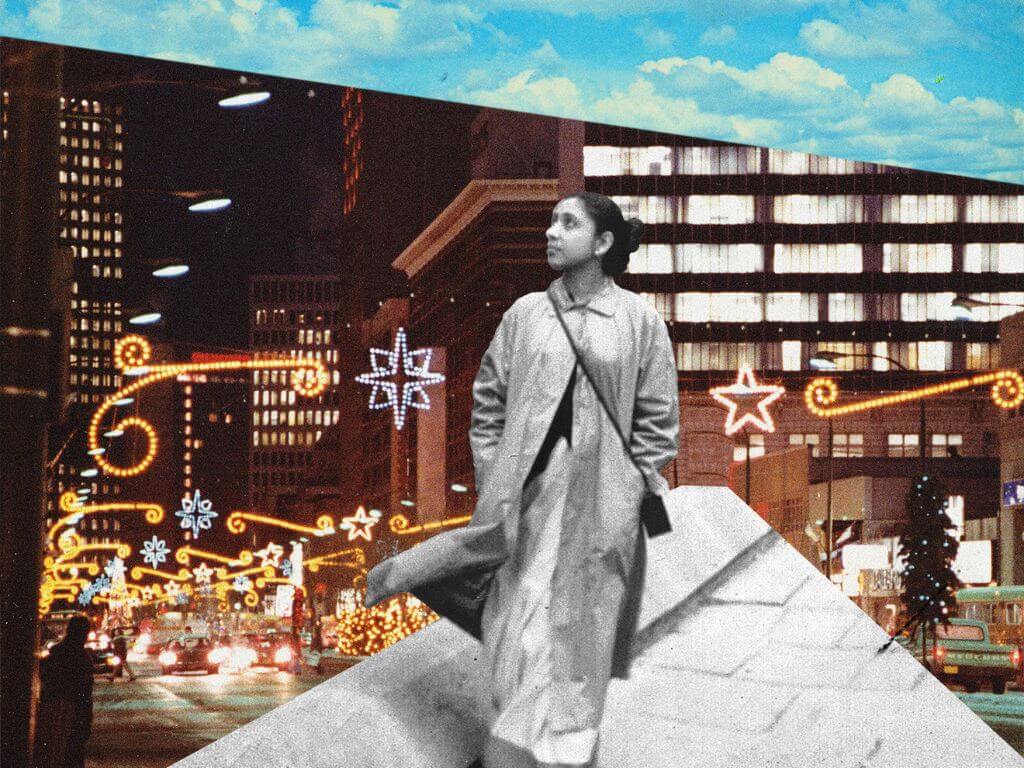
Pamela Mala Sinha’s Latest Play “NEW” Breathes Fresh Life Into Our Parents’ Immigrant Story
Entertainment Apr 28, 2023
Award-winning playwright Pamela Mala Sinha knew it was time to shed layered lights on the often-told immigration story. This time with the help of her aunties and uncles, she delved into the idea of identity, sexual politics and cultural expectations when researching for her new play. And these layers are peeled back in NEW her latest play focusing on three young freshly married couples who made their new home in Winnipeg, Manitoba in the early ’70s. Directed by Alan Dilworth and presented by Necessary Angel Theatre Company in association with Canadian Stage and the Royal Manitoba Theatre Company, NEW runs in Toronto from April 25 through May 14th, 2023. Pamela chats with us about her research, bringing those iconic family photos to life and the real (fearless) immigrant story.
Hina P. Ansari Congrats on your new play Pamela! Please tell me how the idea of this play came about?
Pamela Mala Sinha: My parents emigrated to Canada in the mid ‘60s: my mother was a dancer in Uday Shankar’s troupe, and my father was recruited from the London School of Economics and they built a family from a small group of bachelors and married couples: Hindu, Muslim, Sikh, Christian — it didn’t matter —they celebrated everything together. When children came, these friends raised us together. My cousins are my cousins not by blood, but the love that came of those lifelong friendships. My Uncle Biswas was one of those bachelors who became my parents first ‘family’ here. He called my mother Bodhi, sister-in-law, and my father, Dada – big brother. When he died it felt like I lost Daddy all over again. During his funeral, I looked through old photos of cigarette-holding, scotch-drinking couples in filmy saris, and skinny ties that looked way cooler than the depictions of “brown” immigrants that inundate present popular culture. When a new play commission from Soulpepper Theatre followed not long after, I decided to interview those same aunties and uncles about marriage and love and loneliness and home. I wanted to write a play about my parents’ generation when they were young here; and so cool and beautifully flawed. And I especially wanted to capture a certain era of immigrants that is missing in our narrative as a country, and it definitely is missing on our stages.
HPA: In your own words tell me the premise of NEW.
PMS: It’s 1970s Winnipeg — a time of revolution and radical possibilities — and an apartment building of immigrant friends is about to be transformed by their latest arrival. Qasim is happily in love with his Canadian girlfriend Abby and has made dear friends with his Indian neighbours. But when Qasim’s mother goes on a hunger strike to strong-arm him into an arranged marriage, his fearless young Bengali bride challenges each member of this close knit family of friends to rethink their perceptions of identity, sexuality, and freedom. New is a joyous ensemble drama that honours the immigrant experience and though told through an Indian lens, is a story for everyone, from anywhere.
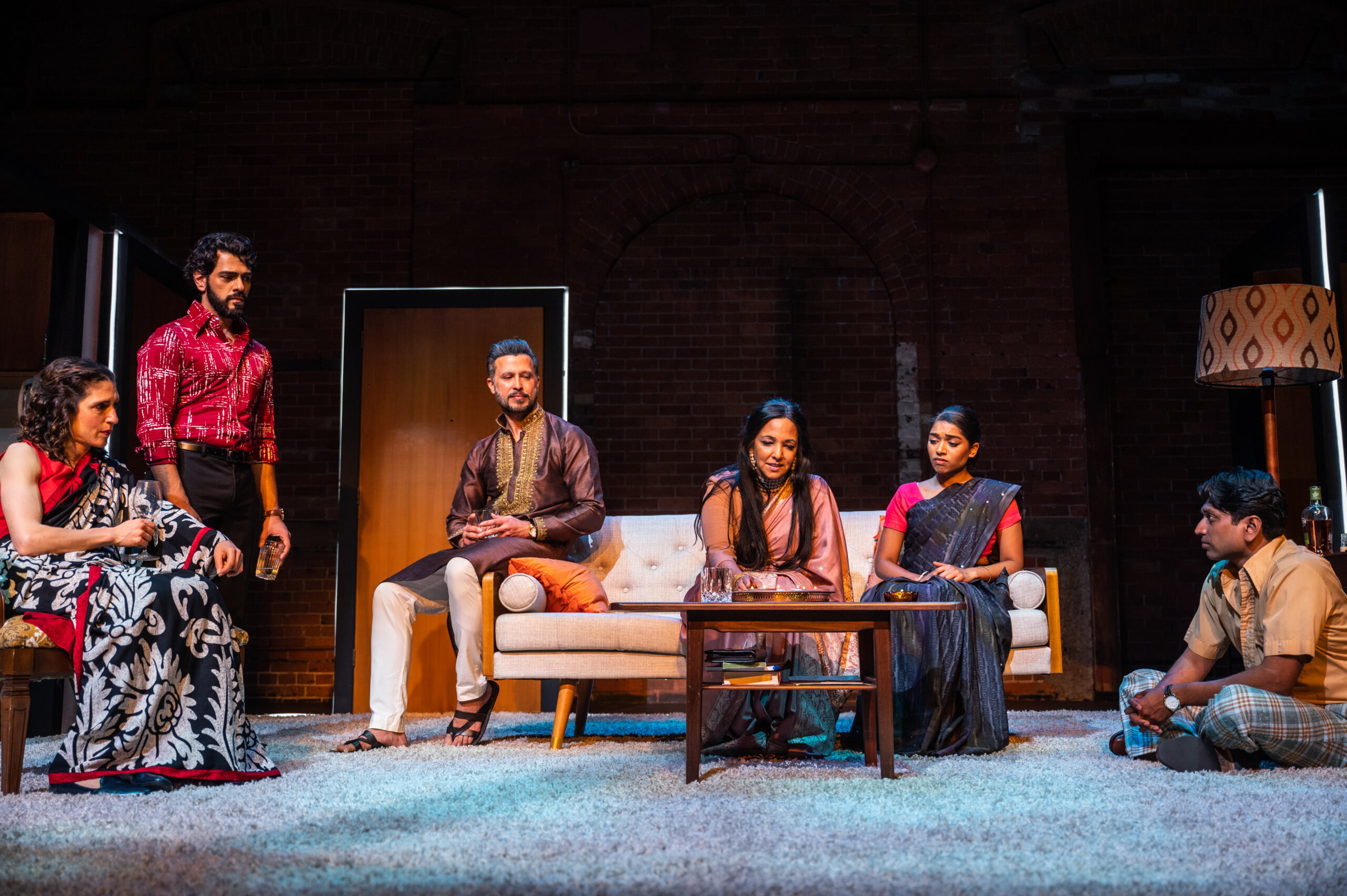
HPA: This play’s premise is personally is so relatable to me, especially in your program notes about seeing photos of the scotch drinking, cigarette-holding groovy couples in their “skinny ties” and the chiffon saris. I swear you are describing my parents and uncles back when they too were embarking on a new country and journey. When you were interviewing your aunties and uncles for this research, what was the common thread you noticed among their recollections?
PMS: Their willingness to not only answer my questions, but their excitement to be asked! Of course they were reticent at first, but because they saw me grow up, they trusted me with their stories, and recollections. I wanted to know about early marriage, first fights, loneliness … and their understanding of love as they came of age so far from home. I asked them what friendship looked like to them; how it transformed into “family”. Mostly, I wanted to capture some of the things they told me that mattered to them. They talked to me about the complex nature of love and sacrifice, joyful togetherness and piercing loneliness, and what it means to be thought of as ‘new’ — because of how you look — in a country where you are not new, a country that is your home. The generosity with which they shared their stories with me was deeply moving. Though NEW is a product of my imagination, that imagination was fed by the truths I learned about a time before I was born, and in many ways thought I knew.
HPA: Was there anything that they mentioned that surprised you?
PMS: A surprising disclosure was when one of my Muslim uncles told me at the time of his youth, parents back home were getting increasingly worried about their sons falling in love with “foreign” women while studying abroad so they began allowing Nikkahs over the telephone! He himself knew someone who had gotten married that way in Winnipeg and the moment he told me this I knew this would be the opening scene of my play. You can’t make that stuff up.
HPA: I am mesmerized by your mother’s full journey as noted in the play’s program book. How does it feel to be able to share that specific love (and success) of the theatre/arts with her?
PMS: My love of story came from her. I don’t think it’s any accident that I’m an actor and writer, or that my brother Debashis is a musician and sound designer (his first show was CRASH, my solo debut play and now he’s a fixture at Stratford and teaches sound design at TMet–)… we’re her children. What’s wonderful with NEW that it really is a celebration of her and her generation and to articulate it within the context of the theatre just makes so much sense. Theatre is ephemeral — you can’t look back and see it again. It exists only for the time it exists — and then it’s gone. Like youth and beauty are ephemeral. They were young once, now they’re old. But who they were is still part of who they ARE … that part of them exists because it existed once. I feel so proud to honour them in the medium I love, and blow apart stereotypes and assumptions of them while I’m at it!
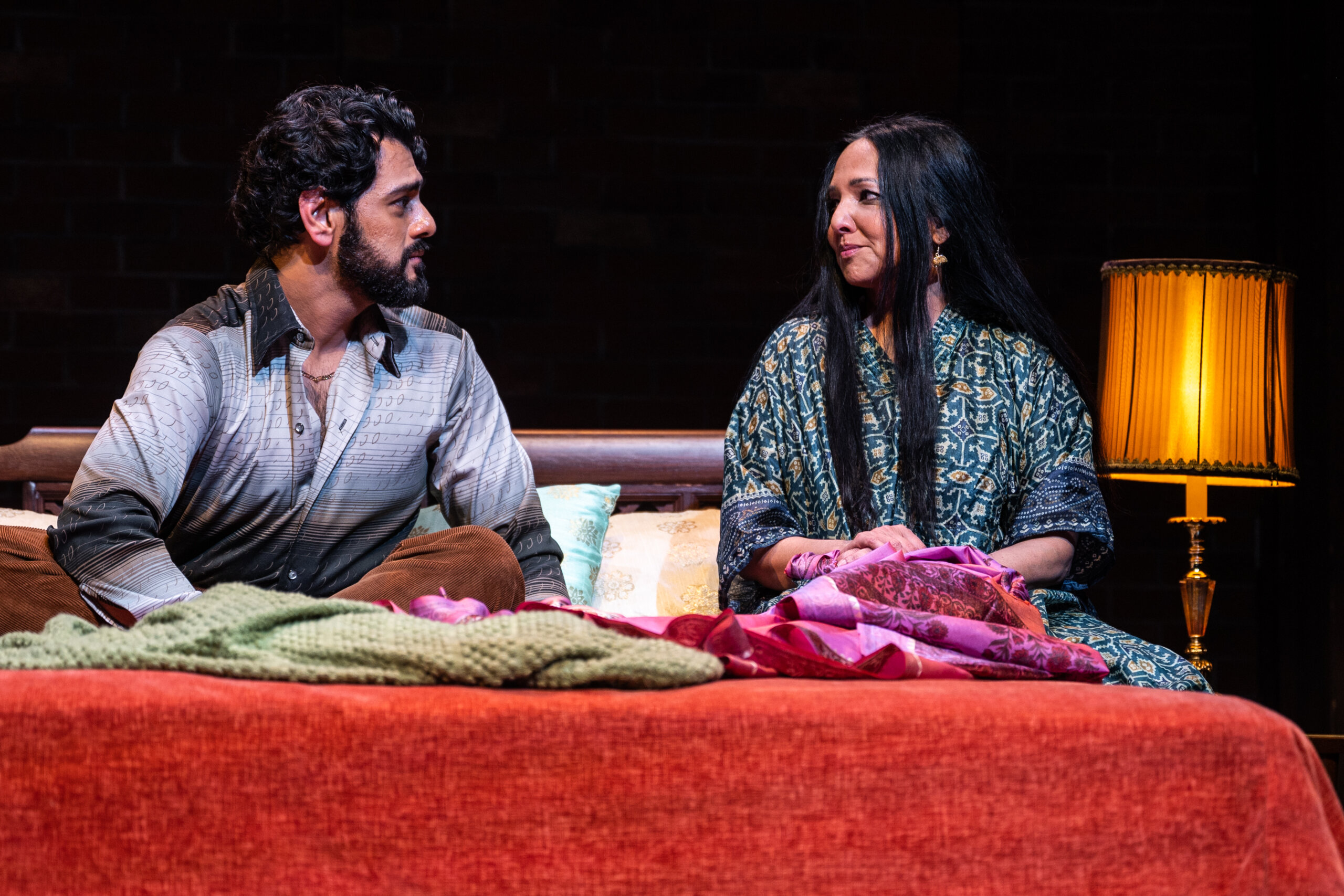
HPA: You play Sita in the play. Tell me about her.
PMS: Sita is inspired by what my mother told me of her first year in Canada; how out of place she felt as a classical Indian dancer who’d toured all over Asia with Uday Shankar’s troupe, then suddenly reduced to the role of a wife alone all day while her husband was at the University, fulfilling his dreams. Of course everything he was working towards was for her too, but she was just so lonely. The woman I grew up with was quite the opposite — she was so groovy and artistic — driving all over town from rehearsal to rehearsal! So Sita is a tribute to who she — and so many women like her — were, when they first arrived in Canada.
HPA: Share with me your experiences working with director Alan Dilworth?
PMS: Alan and I have collaborated many times: he directed CRASH, my first solo play that I wrote and performed across the country and most recently in New York, pre-Covid. Since this first collaboration, I work with Alan not only because of his deep understanding of what I’m trying to say as a playwright, but because his desire to make art that is both provocative and complex is the kind of art I want to make, and where I know we both find meaning. Alan has inspired me to take risks and encourages me to write the stories I NEED TO TELL; we’ll deal with the “how” after I’ve written what I can, for the moment, only imagine. And now, three years later, we’re about to open this crazy, sexy play about brown people in 1970’s Canada and I get to be directed by him as an actor too. This is the third play where I act in something I wrote (Happy Place was my second play he also directed me in) and every time, he pushes me to let go as a playwright and fully inhabit the words I’m saying as if I didn’t write them. He’s after the truth and you have to dig deep for that, and fight for it – as I would playing any part in any play. Acting is hard. It’s a craft. And though Alan is not of Indian descent, I know Alan will take the words on the page and be rigorous in a way that challenges me to go deeper as a playwright and an actor. His curiosity and humanity is what makes him the right person to direct NEW… it was never a question for me.
HPA: What was your family’s/friends’ reaction when they first saw the play?
PMS: There were a lot of tears. From happiness, and from remembering. And a lot of wonder from the elders at seeing ‘themselves’ reflected onstage as they once were, and their kids’ (my generation’s) joy at seeing stereotypes replaced by complex, sexy, and sometimes unlikeable characters. Real people. They were proud of the play. And that made me proud.
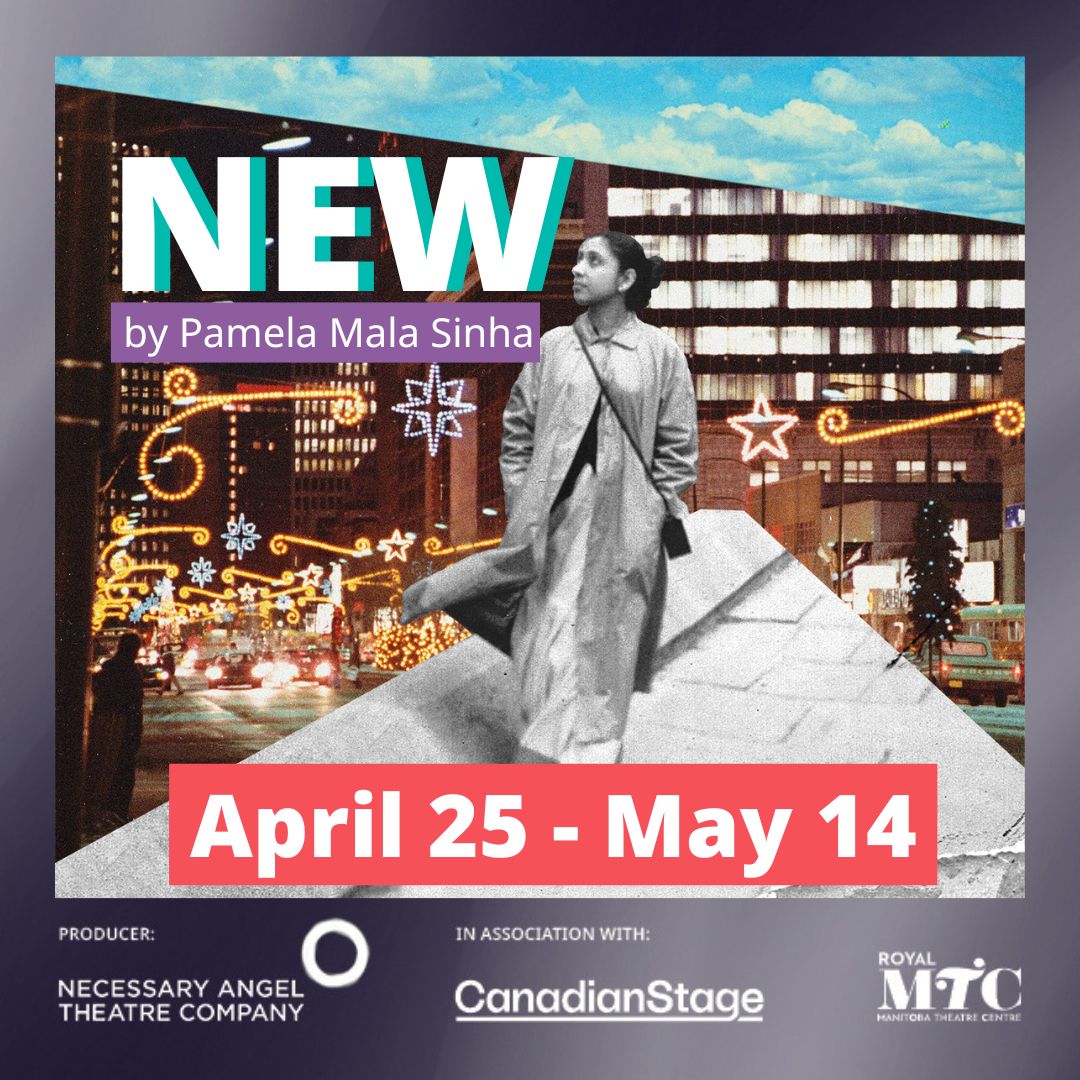
HPA: This is your third play, your first two as you have mentioned, being highly the acclaimed productions of CRASH and Happy Place. What have you learned from your journey of writing/developing your very first play to writing your current one?
PMS: I’ve learned I love writing in ANY medium. Happy Place the play was optioned as a feature film by Sienna Films (now ‘Sphere Media’) and it was my first screenplay! It was directed by Helen Shaver (Station Eleven) and starred Sheila McCarthy (Women Talking) and garnered the hilarious Mary Walsh her first CSA award in a dramatic role. NEW was then optioned by Jennifer Kawaja as a one-hour drama series and we’ve completed development on the first three episodes with the CBC. As I was writing the series I’d go back to the play and push the boundaries of the stage to meet the freedom that television affords you. And then I’d mine the subtext that theatre text demands and give it to the characters on screen. Of course each medium has its own demands but serving the story – whether my first play or my fiftieth, for television or film, is the constant goal.
HPA: Knowing what you know now, what would you have told yourself when you first got down to writing the first pages of your first play?
PMS: If you are compelled to write, write. There’s no right way to do it or wrong way to avoid it. I come to the craft with a lot of humbleness because I know many brilliant playwrights and I know what writing demands. But if you wait for someone else (like a ‘real’ playwright) to tell the story you want to tell you will wait a very long time. Trust the story. Serve the story. The rest is just noise.
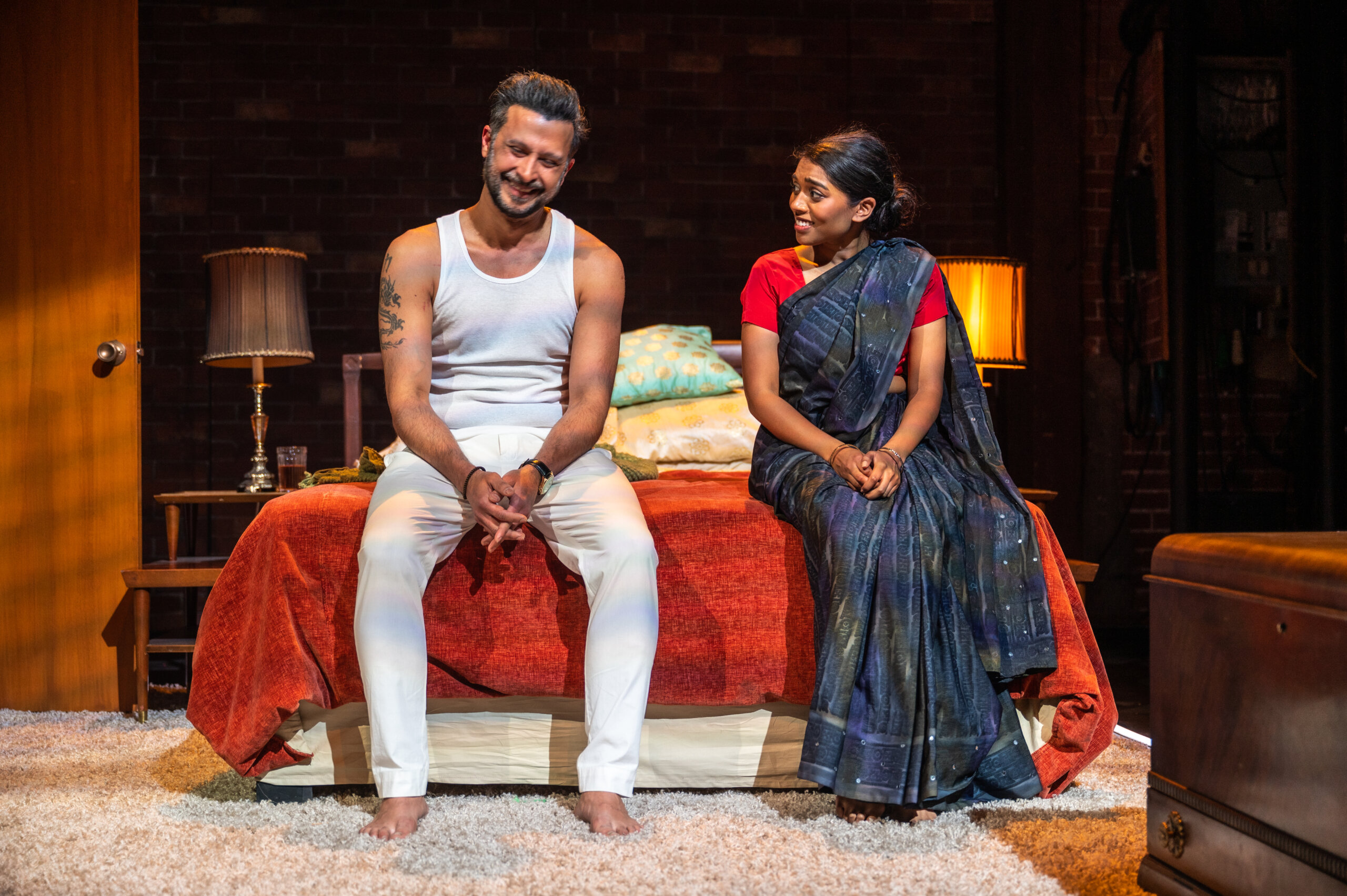
HPA: Were there any challenges that you really fretted over when in hindsight you realized it wasn’t that big a deal? Tell me about learning that lesson and that creative process?
PMS: It’s always a big deal! The tiniest detail to the most dramatic plot point. But I am forced as a writer to learn to let go. You can’t control a director’s interpretation, or how other actors bring themselves to parts that you wrote and know so intimately… or even how the audience will receive it. Surrender the thing you made with love, and let it live where it will.
HPA: It must be asked, has the past three years affected your creative thought process? As we all are coming out of what has been an unprecedented time, our collective thinking has shifted in so many ways. Has it for you and if so, what have you discovered when it comes to your creative journey.
PMS: We needed art more than ever in those dark and lonely times, didn’t we? We watched anything and everything. And yet, we don’t value artists. And we really, really need to. People will spend literally hundreds of dollars on games tickets and balk paying a fraction of a fraction of that at the theatre. We need art not just to occupy our time (and we had so much time…) but to occupy our hearts. Because ultimately it’s about the human condition. Whatever it is — whatever medium — comedy or drama, theatre or television or film… all ‘story’ boils down to that. And we need to support it. Appreciate it. Protect it.
HPA: What advice would you have for future playwrights?
PMS: You are the only one who can tell the story you want to tell. Start there.
HPA: Thank you so much for your time!
PMS: Thank you for your thoughtful questions. And for ANOKHI’s recognition of my work over the years… from its very first issue. I’m so proud to share NEW with your readership. I hope they are equally proud to see their stories — our stories — onstage.
Main Image Photo Credit: Necessary Angel Theatre Company/Canadian Stage
Hina P. Ansari
Author
Hina P. Ansari is a graduate from The University of Western Ontario (London, Ontario). Since then she has carved a successful career in Canada's national fashion-publishing world as the Entertainment/Photo Editor at FLARE Magazine, Canada's national fashion magazine. She was the first South Asian in...





